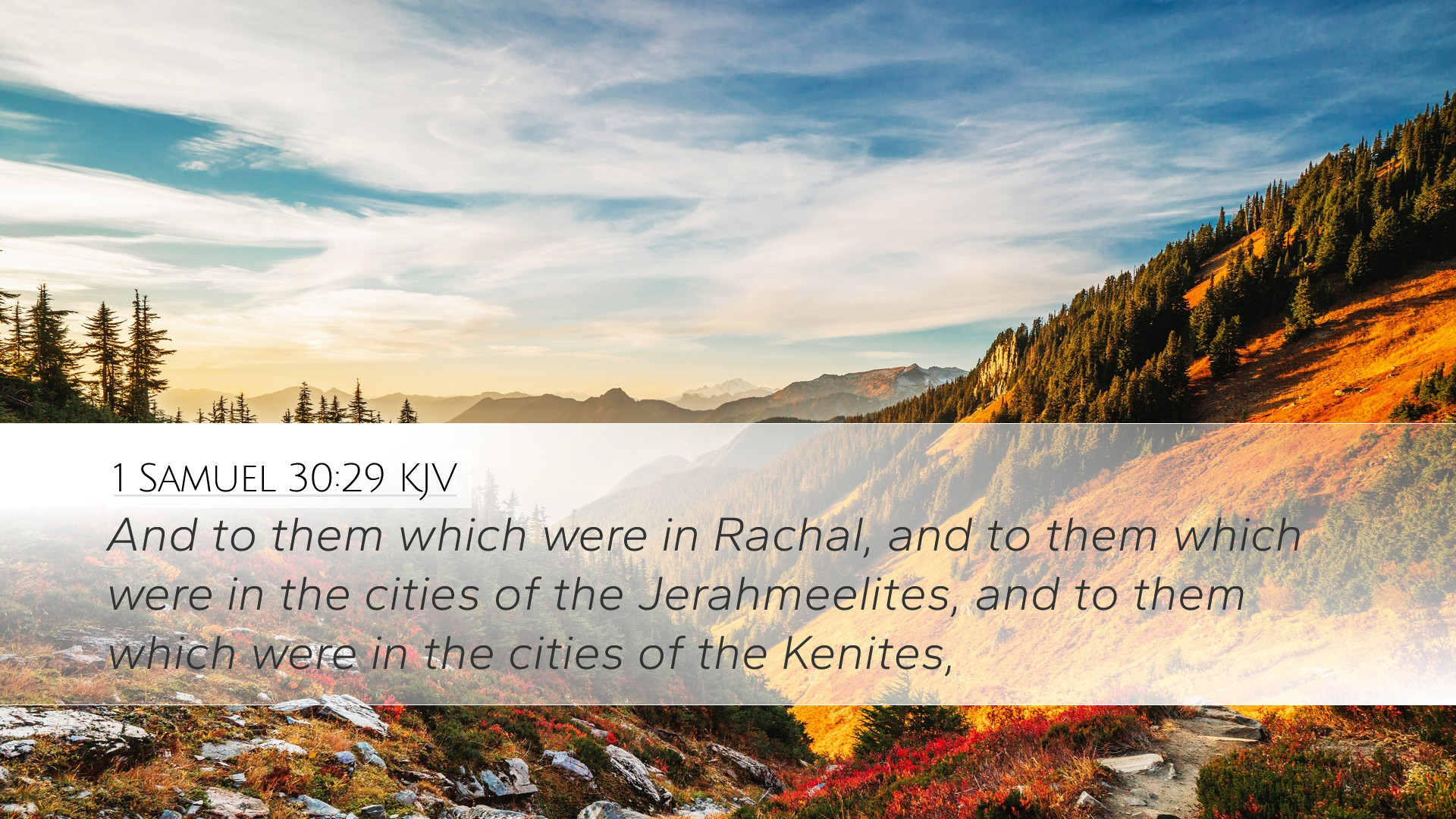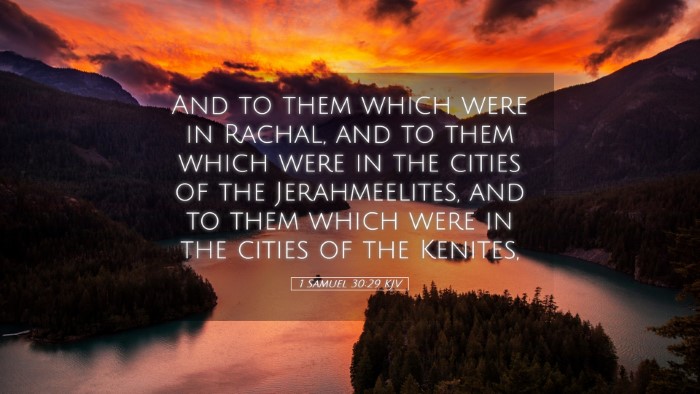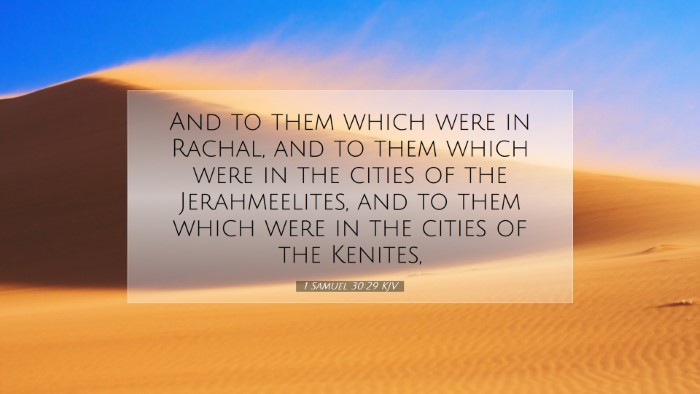Commentary on 1 Samuel 30:29
Verse Overview: 1 Samuel 30:29 states, "And the share of the man who stayed with the supplies is to be the same as that of him who went down to the battle. All will share alike."
Contextual Background
This verse occurs in the context of David's return to Ziklag after his campaign against the Amalekites. The events illustrate the broader themes of fellowship and equity in the community of believers. David's leadership style and his moral aptitude are highlighted here, showcasing the principles of justice and fairness that he embodies.
Insights from Matthew Henry
Matthew Henry emphasizes the importance of recognizing the contributions of all members within a community, regardless of their role in a particular endeavor. He notes:
- Equity in Reward: Henry suggests that all must share alike in the spoils, reinforcing that each person’s contribution is vital. Those who stayed behind may not have been in the battle, yet their role was equally significant, ensuring that provision and supplies were secured.
- The Nature of Leadership: Henry praises David for his decision to treat the warriors and non-combatants alike, displaying a leadership quality that values every individual's effort. This sends a powerful message about the inclusivity of God's kingdom.
Insights from Albert Barnes
Albert Barnes provides a detailed analysis of the social and cultural implications of this passage. His commentary reflects on:
- Customary Practices: Barnes notes that in ancient Israel, it was usual for all who contributed to the expedition to partake in the rewards. This provides a framework for understanding communal responsibility.
- Spiritual Principles: He highlights a parallel to present-day church practices. The church functions as a body where members must work together, receiving equal spiritual blessings, regardless of their visible contribution.
Insights from Adam Clarke
Adam Clarke examines the specifics of the situation wherein the spoils are shared. His perspective includes:
- Justice vs. Meritocracy: Clarke points out that David's decree is grounded in a sense of justice rather than a meritocratic view of earning rewards. The worthiness of benefits is not solely determined by participation in active battle.
- Application to Ministry: He also draws applications to modern ministry, indicating how church dynamics often mirror this principle, where those who support the ministry through prayer or service must be regarded as equally contributing.
Theological Implications
The verse elevates an understanding of community dynamics in the Christian faith. The foundational belief here is:
- Unity in the Body of Christ: This passage exemplifies the need for unity and cooperation among believers, reminding all that different functions within the community contribute to the overall mission of the church.
- Value of Support Roles: It stresses that all roles, even those seemingly behind the scenes, are crucial. This inspires every member to boldly participate in church life with the assurance that their contribution is acknowledged.
Practical Applications
For pastors and church leaders, the teachings of this passage serve as a reminder to:
- Encourage Inclusivity: Ensure that all members feel valued regardless of their visible roles within the ministry.
- Foster Team Spirit: Encourage collaboration and equal sharing of blessings, illustrating that every effort contributes to the success of the ministry.
- Recognize Diverse Contributions: Acknowledge both the visible and hidden contributions of members to cultivate a healthy church environment.
Conclusion
In summary, 1 Samuel 30:29 offers transformative insights about leadership, equity, and community integrity within the body of believers. Drawing from esteemed public domain commentators, this verse illustrates the values of inclusiveness and mutual respect that ought to define Christian fellowship. The effective application of these principles can lead to a vibrant and unified church, where every individual's contributions are cherished as integral to God's purpose.


